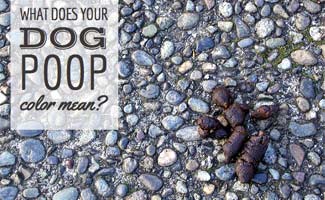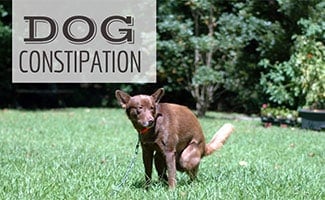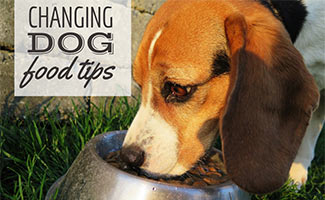What Does It Mean if Dog Poop Is Black
 As the writers of Canine Journal, we feel it's our, ahem, duty to keep you in-the-know about what's coming out of your pup. So here's the low-down on dog poop of every color.
As the writers of Canine Journal, we feel it's our, ahem, duty to keep you in-the-know about what's coming out of your pup. So here's the low-down on dog poop of every color.
Most mild changes in dog stool color are related to dietary changes and aren't cause for alarm. But poop color and consistency can be an indicator of serious health problems, which is why you need to make your dog's business your business.
What Does Dog Poop Color Mean?
 Does your dog's poop look funky? Here's the scoop on doggie-doo of every color and how to tell normal dog poop from problem poop.
Does your dog's poop look funky? Here's the scoop on doggie-doo of every color and how to tell normal dog poop from problem poop.
- Brown (Normal)
- Black Or Very Dark
- Red Or Streaks Of Blood
- Pink Or Purple
- Grey Or Greasy-Looking
- Green
- Orange
- Yellow
- White Specks
Normal Dog Poop
 What "normal" color is varies from dog to dog, breed to breed, and can change depending on the type of dog food they've eaten. In general, the color should be medium brown and neither too soft and liquidy (diarrhea) or too hard to pass comfortably (constipation).
What "normal" color is varies from dog to dog, breed to breed, and can change depending on the type of dog food they've eaten. In general, the color should be medium brown and neither too soft and liquidy (diarrhea) or too hard to pass comfortably (constipation).
Pay attention to your dog's "healthy" poops (color, consistency, and frequency), so you can recognize when there's a problem.
Black Dog Poop Or Very Dark Dog Poop
Black stool in dogs may have a "tarry" or "sticky" consistency. The black color comes from partially digested blood. Black stool may be a sign of an ulcer in the upper gastrointestinal tract, such as a stomach ulcer.
Many human medications, especially aspirin, can cause stomach ulcers in dogs. There are also medications specifically for dogs that increase the risk of stomach ulcers if taken for a long time.
Never give human meds to your dog without consulting your vet.
Bright Red Dog Poop Or Streaks Of Blood In Stool
The bright red color comes from undigested blood in the GI tract, specifically the lower GI tract. Streaks of blood in your dog's poop may be a sign of colitis (inflammation of the colon), a rectal injury, an anal gland infection, or possibly a tumor.
Pink Or Purple Dog Poop
 Anything that resembles raspberry jam (sorry to ruin your toast) could indicate hemorrhagic gastroenteritis (HGE), a potentially fatal disease that causes a sudden onset of vomiting and diarrhea. Most dogs with HGE will recover with prompt treatment. Seek emergency medical attention.
Anything that resembles raspberry jam (sorry to ruin your toast) could indicate hemorrhagic gastroenteritis (HGE), a potentially fatal disease that causes a sudden onset of vomiting and diarrhea. Most dogs with HGE will recover with prompt treatment. Seek emergency medical attention.
Grey Or Greasy-Looking Poop
Doggy-doo that appears fatty, glistens, or comes out in large, soft amounts could indicate Exocrine Pancreatic Insufficiency (EPI). Commonly referred to as maldigestion, EPI is a disease in which the pancreas doesn't produce the necessary enzymes to digest fat. EPI is treatable, so see your vet.A fatty diet may also be the cause of grey, greasy poop in dogs.
Green Dog Poop
Green poop can be common if your dog eats large amounts of grass. However, it can also be a sign of intestinal parasites or rat bait poisoning. If your dog has green poop, see your vet to be safe.
Orange Dog Poop
It could indicate a liver issue or biliary disease, or it could just mean that your dog's food moved too quickly through the GI tract to pick up the bile. Bile is made in the liver and is what changes poop to the normal brown color we expect. If your dog has orange diarrhea, contact your vet.
Yellow Dog Poop
 Yellow mucus usually indicates a food intolerance, especially if you've recently changed your dog's diet.
Yellow mucus usually indicates a food intolerance, especially if you've recently changed your dog's diet.
Take a look at what your pet's been eating and try to rule out any new ingredients that could be causing an upset stomach and mustard-yellow dog poop. You can also administer an at-home allergy test to determine dietary or environmental allergies.
Even with an at-home allergy test, you'll want to take your dog to the vet so that you know for sure which ingredient is causing your dog's tummy problems.
White Specks In Poop
Worms, particularly tapeworms, often look like white grains of rice in your pup's stool. This is treatable, so see your vet.
Dog Poop Color Chart Infographic
Check out our visual guide to dog poop colors.

What Your Dog Eats Matters
As veterinarian Dr. Carrie Jelovich reminds us, "What goes in, must come out." The best way to prevent problems is to know exactly what your dog is eating. Here's how:
- Feed a consistent diet of the highest quality dog food you can.
- Limit human food. Even pet-safe people food can cause problems in dogs with allergies, sensitive tummies, or if they simply have too much of a yummy treat. Make sure kids and other family members know what not to feed your dog.
- Prevent your pup from rummaging in trash and compost piles.
- Know what's growing in your yard; mushrooms and many types of plants (including berries) can make your dog super sick.
- Keep medicines, household trash, cleaning products, lawn and garden, car-care, and pest-control chemicals out of reach because they all pose serious threats to your dog's health if ingested. The bottom line: if you wouldn't want a child to eat it, you don't want your dog to eat it.
Tips To Keep Poop Healthy Infographic

When In Doubt, Contact Your Vet
As always, err on the side of caution and contact your vet. Don't give your dog human medicines – even over-the-counter formulas – without instructions from your vet.
Be ready to supply a stool sample and let them know if you observe any other symptoms such as changes in urgency, frequency, or vomiting, lethargy, difficulty breathing, or behavioral changes. Your vet can do the necessary testing to properly diagnose and treat your dog.
How To Save Money At The Vet
Unexpected vet bills can be a crappy situation. Fortunately, there's a way for you to save money on those unplanned bills.
Pet Insurance Can Help
Should your pup become sick or injured, pet insurance can help cover the cost of eligible conditions. If you're thinking about buying pet insurance, you can read up on the companies we rank in our pet insurance reviews. We share our top three recommendations for the best pet insurance companies and go over their key features, including plan and cost options, coverage, and exclusions.
If you're trying to narrow it down to a few options, our pet insurance comparison may help you. We compare the most popular pet insurance companies and put together comparison tables for waiting periods, coverage and exclusions, age limitations, prices, and more. This is an excellent way to eyeball how all the companies stack up with their offerings.
And if this is an entirely new topic for you, it's a great idea to learn all about how pet insurance works. The video below helps explain how dog insurance works and how it can save you money.
Other Poop Problems?
Have a hard time cleaning up after your pup? Check out these pooper scoopers, which help get the job done without hunching over. And if your dog eats poop, don't worry we've got you covered too (not literally). Find out why dogs eat poop and how to get them to stop.
What issues have you had with your dog's doo-doo?
Disclaimer: This website contains reviews, opinions and information regarding products and services manufactured or provided by third parties. We are not responsible in any way for such products and services, and nothing contained here should be construed as a guarantee of the functionality, utility, safety or reliability of any product or services reviewed or discussed. Please follow the directions provided by the manufacturer or service provider when using any product or service reviewed or discussed on this website.
Disclaimer: The information provided through this website should not be used for diagnosing or treating a health problem or a disease. It is not a substitute for professional care. If you have or suspect you may have a health problem, you should consult your health care provider.
What Does It Mean if Dog Poop Is Black
Source: https://www.caninejournal.com/dog-poop-color/
0 Response to "What Does It Mean if Dog Poop Is Black"
Post a Comment